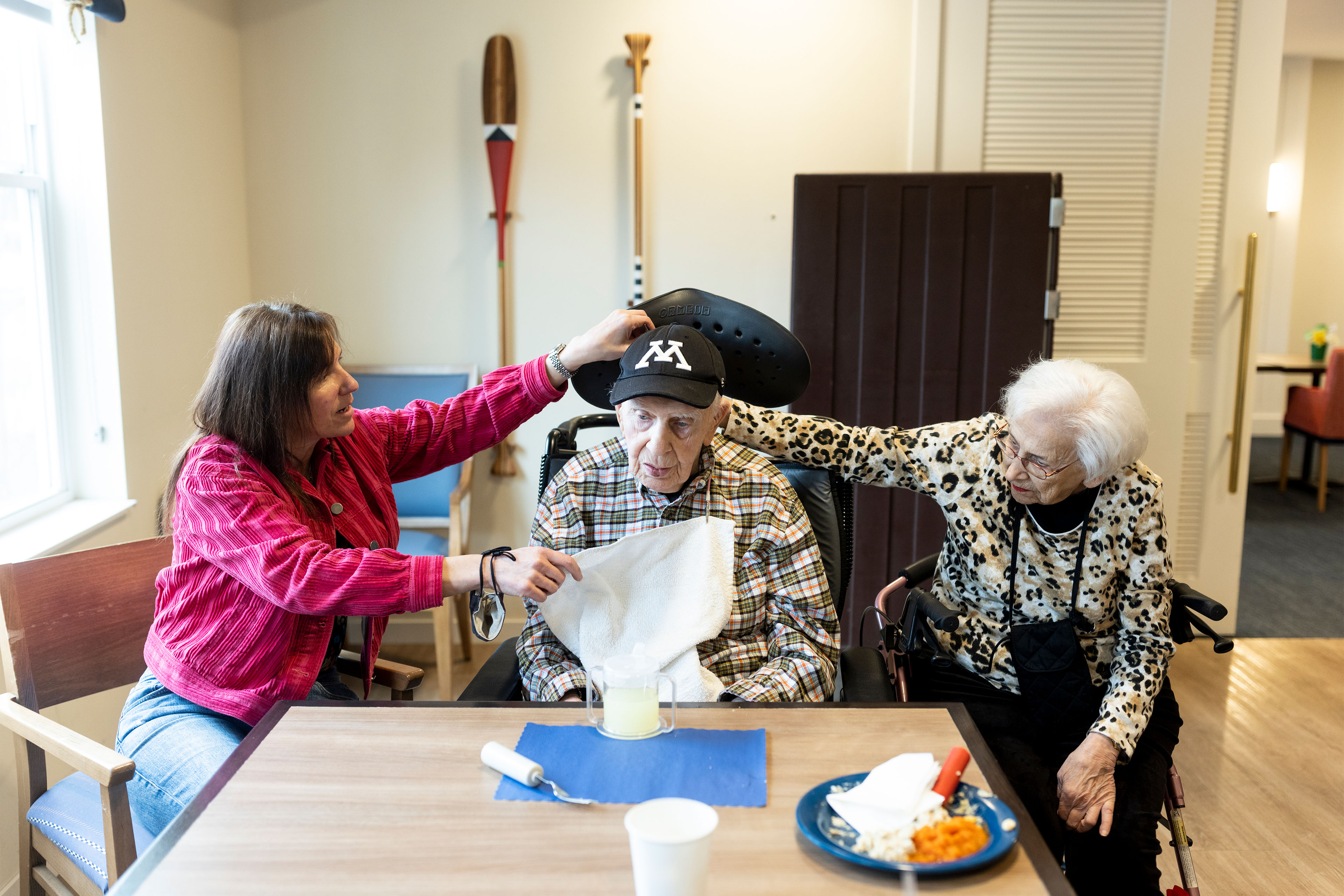Explore high-quality Memory Care programs designed for cognitive health.
Explore high-quality Memory Care programs designed for cognitive health.
Blog Article
Discovering the Right Assisted Living Remedy for Tailored Memory Treatment Programs
The process of selecting an appropriate assisted living solution for tailored memory care programs calls for a nuanced understanding of specific requirements, specifically as they relate to cognitive disabilities such as Alzheimer's and dementia. It is crucial to assess not just the certifications of the staff yet likewise the accessibility of personalized treatment strategies that accommodate the particular challenges homeowners deal with. Furthermore, the impact of engaging tasks and a supportive area can not be overstated. As we check out these factors, the question continues to be: what really comprises an ideal setting for memory care?
Recognizing Memory Treatment Needs
Understanding the special memory treatment demands of people with cognitive impairments is vital for supplying effective support and enhancing quality of life. Cognitive disabilities, consisting of Alzheimer's illness and various other forms of dementia, significantly impact a person's capability to procedure info, interact, and keep independence. Because of this, tailored techniques are essential in dealing with these difficulties.
People with memory problems often experience confusion, mood changes, and disorientation, requiring a helpful and structured atmosphere. Memory care programs must concentrate on developing a risk-free room that urges social communication, cognitive involvement, and psychological wellness. This can be achieved through specialized activities, such as memory games, art therapy, and memory sessions, which advertise cognitive stimulation and protect individual identity.

Evaluating Team Qualifications
The credentials of employee in memory care programs are essential to providing high-grade support for individuals with cognitive problems. Evaluating team credentials involves analyzing both educational history and functional experience in geriatric care, especially in memory-related problems such as Alzheimer's and various other forms of dementia.
Search for team who possess pertinent qualifications, such as Certified Mental Deterioration Specialist (CDP) or specialized training in memory treatment. These qualifications indicate a commitment to comprehending the intricacies of cognitive decrease and effective communication techniques customized to homeowners' distinct demands. On top of that, ask about recurring training opportunities that personnel join, as continual education and learning is important in a field that progresses rapidly with brand-new study and ideal techniques.
In addition, assess the staff-to-resident proportion, as this straight impacts the quality of treatment. A reduced proportion enables more customized attention and engagement with locals. Observe staff communications with existing citizens to assess their empathy, patience, and ability to link. Eventually, a well-qualified team is paramount in fostering an environment that boosts the self-respect and lifestyle for people in memory care.
Relevance of Personalized Treatment Plans
Personalized treatment plans play a crucial duty in enhancing the health of people in memory care programs. These strategies are tailored to the special needs, choices, and capabilities of each resident, making certain that care is both pertinent and effective. By taking into consideration aspects such as case history, cognitive feature, and individual rate of interests, caretakers can produce an extensive strategy that promotes dignity and regard for each individual.
The value of individualized treatment strategies expands beyond fundamental treatment demands; they cultivate a complacency and experience, which is essential for people experiencing memory challenges. By dealing with particular behavioral patterns and psychological actions, caretakers can apply approaches that reduce stress and anxiety and boost total top quality of life.
In addition, individualized treatment plans help with much better communication among staff, family participants, and doctor. This joint strategy makes certain that every person entailed is notified and aligned in their care initiatives, bring about even more constant and reliable support. Ultimately, a well-structured personalized treatment strategy is essential in memory care programs, as it not just enhances daily living experiences yet additionally adds to the long-term wellness and joy of locals.
Engaging Tasks and Programs

Activities such as art treatment, music sessions, and memory treatment offer avenues for self-expression and cognitive interaction. These deliberate interactions not just assist in preserving click for more cognitive capacities but also supply psychological benefits, lowering feelings of seclusion and anxiety that usually go along with memory loss.
Additionally, structured team activities can motivate socialization, which is essential for emotional wellness - Assisted Living. Normal involvement in games, exercise classes, and area trips develops an atmosphere of sociability and assistance. Customized programs that consider private passions and histories better boost engagement, making tasks much more purposeful and effective
Integrating modern technology, such as memory games and virtual truth experiences, can additionally serve to enhance the day-to-days live of residents, offering cutting-edge ways to promote cognitive feature. Ultimately, a focus on appealing tasks and programs is important for promoting an encouraging environment that promotes alternative wellness in memory care settings.

Assessing Neighborhood Setting
When examining a community atmosphere for memory care programs, it is vital to take into consideration factors that add to the total wellness and security of homeowners. The physical layout of the community should prioritize accessibility and navigation, lessening barriers while providing clear signage and familiar landmarks. A protected atmosphere is important to prevent residents from wandering, which can position security threats.
In addition, the sensory facets of the area, such as lights, shade systems, and sound degrees, play a significant role in enhancing comfort and reducing anxiety amongst locals. Natural light and outdoor spaces promote involvement with nature, cultivating a comforting ambience that can profit cognitive feature.
One more essential aspect is the availability of experienced team that comprehend the special needs of individuals with memory problems. Personnel ought to be geared up to develop a caring atmosphere that encourages social communication and emotional support.
Lastly, the sense of neighborhood and belonging is important. Involving household involvement and possibilities for citizens to form connections with peers can considerably improve their general lifestyle. Memory Care. By very carefully evaluating these factors, family members can make informed choices about one of the most suitable memory treatment community for their enjoyed ones
Verdict
In final thought, selecting a proper assisted living solution for customized memory care programs demands a detailed assessment of specific needs and choices. Prioritizing personnel credentials, customized care plans, involving activities, and a helpful area atmosphere is crucial for improving the lifestyle for locals encountering cognitive challenges. By attending to these critical aspects, family members can guarantee that their enjoyed ones receive the required assistance and treatment to foster emotional wellness and cognitive stimulation in a nurturing setting.
Report this page